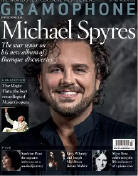Texte paru dans: / Appeared in: |
|
|
Outil de traduction |
|
|
Beginning with the potentially autobiographical song Retire, my soul, consider thine estate, Stile Antico pitch the music slightly lower and more wistfully than The Sixteen’s recent release (‘Psalmes, Songs and Sonnets 1611’ – Coro, Recording of the Month, 11/22). Comparing the two, there is an instant warmth about Stile Antico’s version; a fond, Werther’s Original hue that goes on to infuse the whole programme. And who’s to say that’s wrong? Certainly not Byrd scholar Kerry McCarthy, whose superb booklet note emphasises the ‘relative peace’ offered to the composer in his twilight years as he lived ‘under the protection of local Catholic gentry’. Built around a deeply moving performance of his Mass for Four Voices, the Propers for the Feast of the Assumption of the Virgin Mary are also performed. These are notoriously difficult pieces but Stile Antico sing them with great poise, particularly the complex flourishes in Propter veritatem. As an ensemble they also deftly navigate the many textural changes that Byrd demands, such as the exquisite three-part verse Assumpta est Maria, in which I especially enjoyed the imitation on ‘gaudet exercitus’.
Returning to ‘Psalmes, Song and Sonnets’: there is a freshness to Praise our Lord, all ye Gentiles that captures a little of Byrd’s defiance, especially in the extraordinary final Amen; more luxurious in The Sixteen’s slower version but quite thrilling at Stile Antico’s uncharacteristically brisk pace. Likewise, Turn our captivity, O Lord is superbly responsive to the text. Cleverly, the closing piece doubles back to a younger work, Tribue Domine from the cautiously named Cantiones, que ab argumento sacrae vocantur (‘Songs which on account of their subjects are called sacred’, 1575 – incidentally the first book of Latin-texted music ever printed in England). Nearly 450 years later, ‘Grant, O Lord, that while I am placed in this feeble body my heart shall praise thee’ inspires some of the richest singing I have heard from this ensemble. |
|




